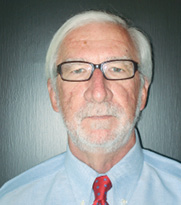On October 5, 2011, Steven P. Jobs, the original founder of Apple Computer Co., passed away after a long battle with pancreatic cancer. Two weeks after his passing, Walter Issacson published a biography of this iconic figure, simply entitled, Steve Jobs. This book should be mandatory reading by anyone interested in managing people and growing their business. Destined to become one of the all-time best selling business books, this authorized biography presents an unvarnished look at one of the greatest entrepreneurs of the last 50 years, if not ever.
Jobs was a brilliant, self-centered narcissist who could be extraordinarily charming and charismatic, but was more often cruel and truculent. Abandoned at birth and adopted by a loving couple, Jobs was a precocious youth, a questioning adolescent, and a passionate, anti-authoritarian ault.
Most are familiar with how Jobs and Steve Wozniak worked together in the Jobs’ garage inventing the Apple computer that started the personal computer revolution.
It is, however, less well known how Jobs left Apple just nine years after the Apple computer invention, and only five years after the company went public, in one of the most oversubscribed initial public offerings in the history of the stock market.
From the very outset, Jobs, as a twenty-something entrepreneur, knew that he was not ready to manage the company. But by 1985, the Apple management team and the board of directors felt that he was incapable of managing even a functional component of the company. In a vote of no-confidence, they terminated his relationship with the company.
Rather than take his millions and retire to the South of France, Jobs left Apple and started another computer company that he would eventually sell to Apple. Additionally, he purchased Pixar, the animated film company, which would, under his leadership, revolutionize animated films with such classics as “Toy Story.”
In 1997, nearly 12 years following his ouster and after a succession of unsuccessful Apple CEOs, Jobs returned to the company he had founded to assume complete control. While still tempestuous and prone to outbreaks of cruelty, Jobs insisted on hiring and employing the “best” people that were available. Jobs believed that he had to be ruthless in building a team of ‘A’ players.
According to Jobs: “It’s too easy, as a team grows, to put up with a few ‘B’ players, and they then attract a few more ‘B’ players, and soon you will even have some ‘C’ players. The Macintosh experience taught me that ‘A’ players like to work only with other ‘A’ players, which means you can’t indulge ‘B’ players.”
Jobs further went on to say that, “I’ve learned over the years that when you have really good people you don’t have to baby them. By expecting them to do great things, you can get them to do great things. The original Mac team taught me that ‘A-plus’ players like to work together, and they don’t like it if you tolerate ‘B’ work.”
His “passion for perfection” led him to demand that the inside of the computer was to be as neat and organized as anything on the outside, and when he toured his factories, he did so wearing white gloves to check for dust. When questioned by a subordinate, he trenchantly told her that they should be able “to eat off the floor.” He went on to say, “If we didn’t have the discipline to keep that place spotless, then we weren’t going to have the discipline to keep all these machines running.”
When Jobs returned to Apple, the company was on the cusp of filing bankruptcy after posting a $1 billion loss. One year later, they posted a $309 million profit. During the next 14 years, Jobs combined his aestheticism with technological know-how to revolutionize the personal computer for the home consumer market with the iMac, the music industry with the iPod and iTunes, the telecommunications industry with the iPhone, the tablet computer business with the iPad and the marketing of retail products through Apple’s incredibly successful retail stores.
Jobs was a genius who combined design, technology and marketing to establish one of the most recognizable brands on the planet.
He was a manager and a leader who set high expectations for himself and those around him and would not settle for anything but the best. He demanded perfection from himself, as well as from those who worked with him. He believed in collaboration, but not in compromise. Like the famous ad campaign that he launched, Steve Jobs did indeed “think different.”
The dealer of tomorrow also needs the passion, the focus and the discipline to think differently, to establish high expectations, and to surround himself or herself with ‘A’ players to generate the profitable sales required for survival in the 21st century.







Post a comment
Report Abusive Comment